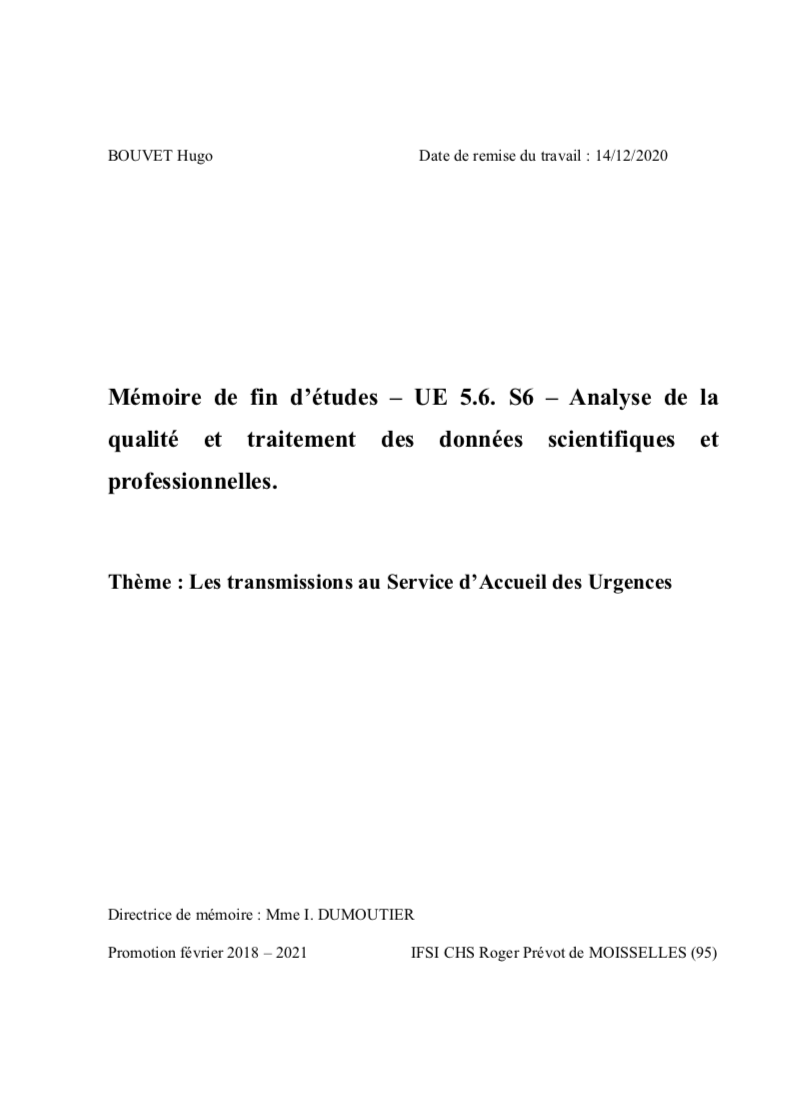
Hugo BOUVET
2021
Résumé
Quand les transporteurs sanitaires amènent un patient au service d’accueil des urgences, ils collaborent avec l’infirmier d’accueil et d’orientation (IAO), en effectuant des transmissions orales et écrites. L’objectif de ce travail est de comprendre l’impact de ces transmissions sur la prise en charge du patient. Deux entretiens ont été effectués afin de pouvoir confronter les données. Au vu des résultats, nous constatons que les rôles et les missions de l’IAO sont connus et définis. Nous avons compris que les transmissions écrites et orales vont de pair, mais que le temps de transmissions varie. Les informations transmises à l’oral sont parfois différentes de ce qu’attend l’IAO, mais il est à noter que la différence de formation entre les transporteurs sanitaires et l’infirmier impacte les transmissions. En conclusion, les transmissions, orales et écrites, sont primordiales. Elles impactent la qualité, la rapidité et donc l’efficacité de la prise en charge par l’IAO. Je me demande si des transmissions ne répondant pas totalement aux attentes de l’IAO peuvent altérer la prise en charge.
Mots clés
Service d’accueil des urgences – Infirmier(ère) d’accueil et d’orientation – Transports sanitaires – Transmissions – Qualité de la prise en charge du patient